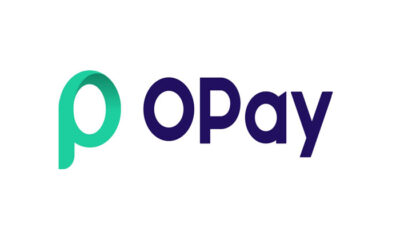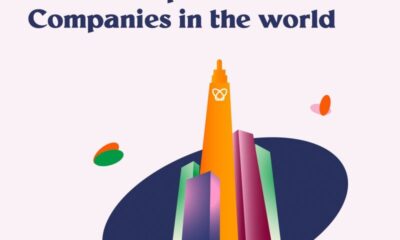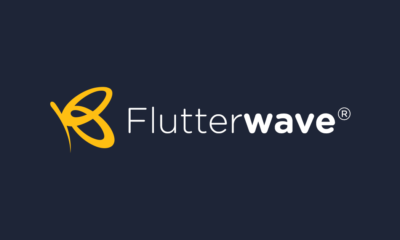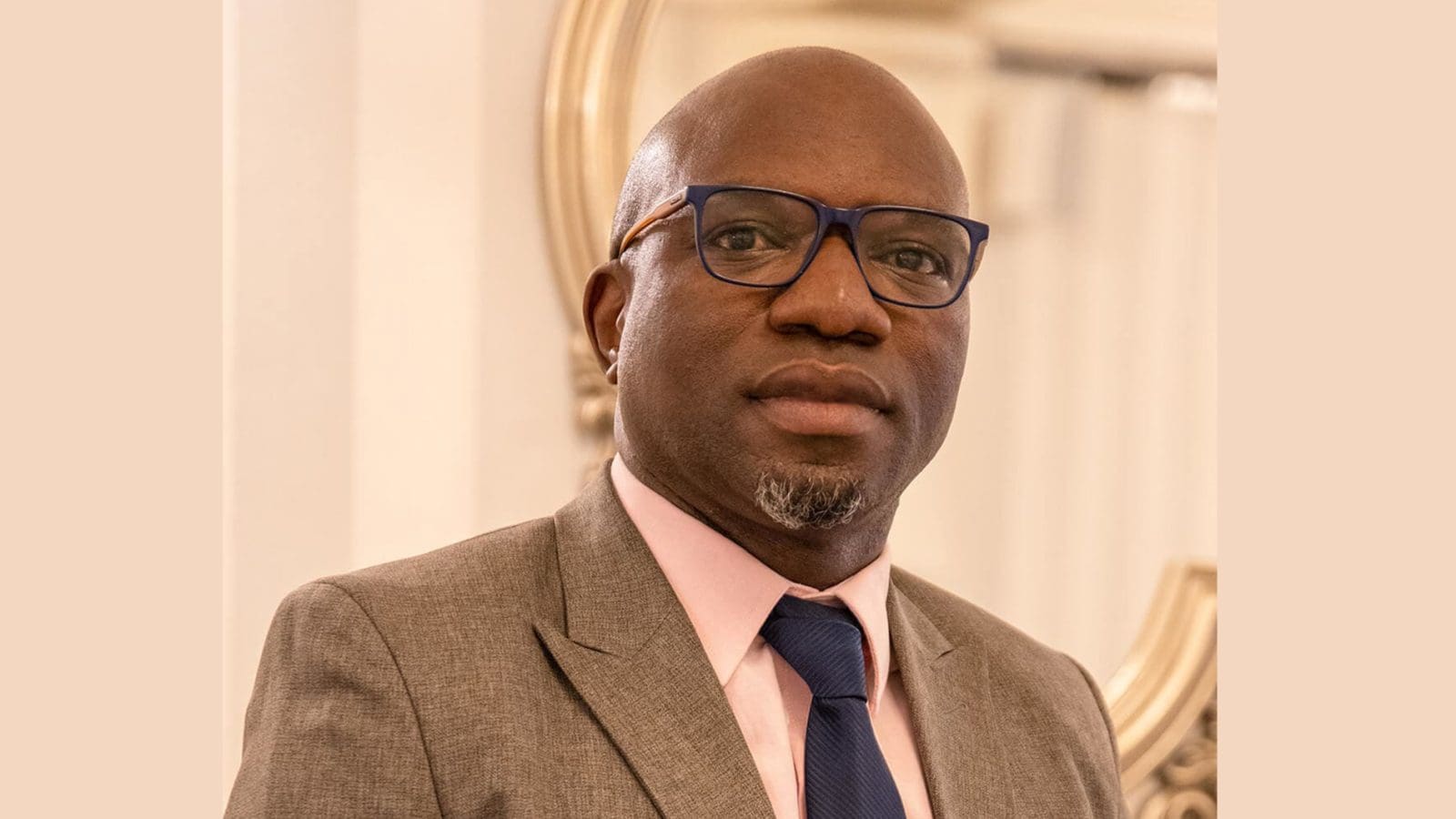As the world improves, there is an increasing need for companies that can use technology to proffer solutions to normal life problems. They are known as tech startups.
It is a very common saying that the world is becoming a global village, due to the advent of technology and the improvements and inventions which are being made every day. Technology is fast becoming a key component of every sphere of life, including health, religion, finance, etc.
The need to keep up with technological advancements around the world has seen various countries establish companies that make strong use of technology to provide normal everyday solutions. The world has started to see startups that provide banking options without having to leave the comfort of one’s home, as well as others that link people up with medical professionals from their mobile phones or laptops.
Nigeria may be argued by some to be technologically behind some of its international counterparts, but that has not stopped various technology startup companies from erupting all around the country (by citizens of the country), providing different services to customers.
Some of the tech startups in Nigeria – the popular and unpopular – that exist in Nigeria will be examined in this article.
CowryWise is a financial technology (called FinTech) company that digitizes the management of investments for Africans and also allows secure access to investment and savings products. It automates the process of saving and investing money, as users can sign up for an investment plan and have a specified amount of money saved from their savings account to their CowryWise account every month. It also boasts of double the interest offered by any bank.
The company was founded in 2017 by Edward Popoola and Razaq Ahmed. In June 2018, the company received seed funding from Microtraction (an investment institute based in Lagos, Nigeria) and was accepted into the Y Combinator Summer 2018 Batch July 2018. In December of the same year, Kairos – an early stage investment fund in the United States of America – listed CowryWise as one of the 50 World-Changing Startups to watch. In June 2021, the startup received a license to operate as a Fund/Portfolio Manager from Nigeria’s Securities and Exchange Commission.
Flutterwave is a payment technology and infrastructure company. It enables global digital payments processing for sellers, placing its primary focus on African markets. The company provides an API (Application Program Interface) that enables merchants to process card and mobile transactions. The company provides the technology, services and infrastructure needed to build custom payments and enable smooth transactions. It has facilitated more than $8 billion in transactions since its inception in 2016.
The company was founded by Iyinoluwa Aboyeji and Olugbenga Ayoola back in 2016. The company was inspired by the payment challenges that Aboyeji faced in payments at Andela, a talent accelerator company of which he was a co-founder. The company then brought in experts from both the technology and banking sectors, for proper operation.
Helium Health was formerly known as OneMedical, and is a private healthcare technology company that provides software as a service for medical practices across Africa. The company provides a range of products and services for electronic health record (EHR) management, medical practice management software, medical billing services and software which help medical personnel interact with their patients. As at December 2018, the company had reported over 5,000 medical professionals and over 500,000 patients using its technology in West Africa.
The company was founded by Adegoke Olubusi, Dimeji Sofowora and Tito Ovia in 2016. It started with the development of its minimum viable product as well as market research before it went on to launch its first hospital in 2016. The company was given the Etisalat Prize for Innovation in 2016, and was recognized by the Nigerian Presidency on the Aso Villa Demo Day, after which it received a World Bank GEM grant. It was also nominated for the Future Africa Awards Prize for Technology in 2018.
The company is another payment processing Startup Company. It makes payment faster and easier for both companies and individuals that make use of the platform. It gives room for its customers to accept payments through credit card, debit card, USSD, money transfer and mobile money. It has its custom Application Program Interface (API) that allows businesses to design their own payment portals. Businesses that use the API also have a dashboard where they can obtain reports and analyze customer data.
The company was founded by Nigerian software developers Shola Akinlade and Ezra Olubi in 2015, with its headquarters in Lagos, Nigeria. In 2016, the company raised over $1 million of seed funding from Tencent, Singularity Investments, SPARK.ng, Olumide Soyombo, and other investors. In October 2020, the company was acquired by American payment company Stripe in a deal that was reported to be worth over $200 million, in a bid to extend Stripe’s services into Africa. Prior to its acquisition by Stripe, Paystack was said to be used by more than 60,000 businesses in Nigeria and Ghana for the collection of online payments.
LifeBank is a medical technology startup that looks to address the issue of blood shortage across Nigeria. The startup has an app that connects with hospitals and clinics. The startup supplies blood from the blood banks, alongside other medical supplies like oxygen, drugs and medicines to people who are in need of medical care. To date, LifeBank has worked with well over 600 hospitals, delivering 28,000 important medical supplies and helping to save over 10,400.
The company was established by Temie Giwa-Tubosun back in 2016. In July 2015, Giwa-Tubosun founded an NGO known as the “One Percent Project” which sought to increase voluntary blood donation across the country. As at December 2015, it had transformed to LifeBank which is a more commercial endeavor. It delivers an average of 300 imperial pints of blood to over 170 hospitals across Lagos in a month.
PiggyVest is another fintech startup that allows individuals to save and invest money easily. It gives room for debit cardholders to automate the saving process. Users will choose a plan, and a little amount of money is automatically saved monthly, weekly or even daily. The users will be able to withdraw this money only on a fixed date. The platform has been useful to over one million people in achieving their saving goals.
PiggyVest was created by Ayo Akinola, Joshua Chibueze, Nonso Eagle, Odunayo Eweniyi and Somto Ifezue in 2016. However, it was initially known as “Piggybank.ng” as a savings-only platform. The savings-only service continued for 3 years, until April 2019 when the company rebranded to PiggyVest and started offering investment opportunities alongside the savings service.
OPay is an Africa-focused financial startup company that builds products that make payments and also focus in transport, grocery and food delivery, etc. Although the company has millions of users, it boasts about having the lowest fees across the entire African continent.
Opay was founded by Yahui Zhou back in 2018, and has an address in Ikeja, Lagos, Nigeria.
Hotels.ng is an online travel booking agency in Nigeria that specializes in hotel bookings. Customers can use it to book hotels online, make payments, view reviews and also write recommendations. The company’s aim is to ensure that every Nigerian enjoys a comfortable hotel experience and has to date partnered up with over 7,000 hotels from about 320 hotels in the country. It was founded by Mark Essien, a Nigerian from Akwa Ibom state in 2012 but launched in 2013.
Paga is another startup that was created to make money transfer easier through a safe platform. It is a mobile app that provides digital money transfer services to over 16 million customers and almost 17,000 agents. The company functions in a similar space to Square (which has recently become Block) and Paypal, as they try to eliminate the use of cash for transactions and access to other financial services. It was founded by Tayo Oviosu early in 2009.
The company provides a cloud-based solution for e-learning as well as workforce development. They have a SaaS platform that makes use of the power of Artificial Intelligence. They offer learning solutions to businesses, government organizations, and recruiters to close the gap between education and skills. Schools can also use it for lectures and to conduct examinations. It was founded by Chris Kwekowe and Emerald Kwekowe back in 2018.
It is an agri-tech startup that seeks to improve food security across the African continent by empowering local farmers. The startup has established a crowdfunding platform, where local farmers are listed. Subscribers can fund these farmers, and then get live updates of what is happening on the farm when harvest is due while also receiving profits. The company was founded by Uka Eje in 2016.
It is a completely digital bank that provides a wide range of financial products to people across all sectors. On the app, you can set up and track your budgets, order your debit cards, access USSD banking service and pay bills. The app also offers free account maintenance, quick and safe transfers, withdrawals, and monthly interest on savings. The company was founded in 2019.
It is a lifestyle and finance app; a digital ecosystem that provides financial, lifestyle and business support services to Nigerians all over the world. The company has been licensed by the Central Bank of Nigeria, and its application has over 100,000 downloads on the Play Store.

 Naira4 weeks ago
Naira4 weeks ago
 News3 weeks ago
News3 weeks ago
 Education4 weeks ago
Education4 weeks ago
 Social Media4 weeks ago
Social Media4 weeks ago
 Technology4 weeks ago
Technology4 weeks ago
 Investment4 weeks ago
Investment4 weeks ago
 Dividends4 weeks ago
Dividends4 weeks ago
 Economy4 weeks ago
Economy4 weeks ago

























